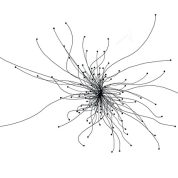
While dyslexia is often framed around challenges with reading and writing, it also comes with a fascinating array of cognitive strengths that deserve just as much attention. Here’s a breakdown of some of the most commonly recognised strengths associated with dyslexia:
Cognitive and Creative Strengths
- Big-picture thinking: Dyslexic individuals often excel at seeing overarching patterns and connections that others might miss. This can be a huge asset in strategic planning, storytelling, and systems thinking.
- Exceptional creativity: Many dyslexic people thrive in creative fields like design, art, music, and innovation. Their unique brain wiring often leads to original ideas and unconventional problem-solving.
- Strong spatial reasoning: Studies have shown dyslexics may outperform peers in tasks involving 3D visualisation, making them well-suited for careers in architecture, engineering, and graphic design.
Problem-Solving and Reasoning
- Excellent puzzle-solving skills: Dyslexic thinkers often approach problems holistically and intuitively, which can make them brilliant at solving complex puzzles or navigating ambiguous situations.
- Narrative memory: Instead of memorising isolated facts, many dyslexic individuals remember information as part of a story, which can enhance comprehension and retention.
Interpersonal and Emotional Intelligence
- Strong conversational skills: Despite reading challenges, many dyslexics are highly perceptive in social interactions and excel at reading people, making them great communicators.
- Resilience and adaptability: Navigating a world not built for their learning style often fosters grit, empathy, and creative coping strategies that serve them well in life and work.
Visual and Organisational Strengths
- Highly visual thinking: Dyslexic individuals often organise information visually, which can lead to powerful infographics, diagrams, and conceptual models.
- Innovative design thinking: Their tendency to challenge conventional norms makes dyslexic designers and creators stand out in fields that value fresh perspectives.
If you’re exploring this for your writing or advocacy work, these strengths could be a powerful lens to reframe dyslexia not as a deficit, but as a different—and often brilliant—way of thinking.
Learn about neurodiversity and how we can better support neurodivergent people the workplace through our evidence based accredited Thrive training program.



